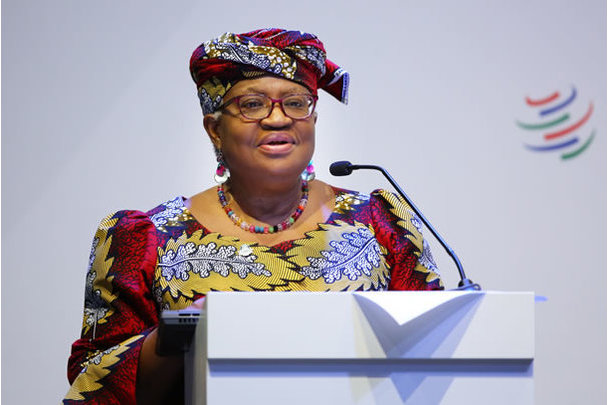Urgent Action Needed to Reform Africa’s $100 Billion Food Import Bill
Understanding Africa’s Agricultural Dependency
Dr. Ngozi Okonjo-Iweala, the Director-General of the World Trade Organisation (WTO), has highlighted the critical need for African nations to take swift action to address their alarming $100 billion annual food import bill. Despite possessing about 60% of the world’s uncultivated arable land, Africa remains heavily reliant on food imports, particularly staples like wheat, rice, and dairy. This dependency drains much-needed foreign exchange and exposes the continent to the volatility of global price fluctuations.
Rethinking Africa’s Development Strategy
In a recent virtual address at the Nigerian Economic Society’s annual conference in Abuja, Okonjo-Iweala emphasized the necessity for Africa to rethink its strategy for sustainable development. She pointed out that it is not just about reducing food imports but also about building resilience, creating job opportunities, and integrating more effectively into global trade networks.
Modernizing Agricultural Practices
To tackle the food import issue, Okonjo-Iweala calls for overhauling food systems across the continent. Modernizing farming practices and developing local food processing industries are essential steps toward strengthening self-sufficiency. By reversing the trends of food imports, African countries could free up resources to focus on other developmental priorities while employing millions of young people entering the job market annually.
Mobilizing African Pension Funds
Beyond agriculture, Okonjo-Iweala underscored the need to mobilize domestic resources to fund Africa’s development agenda. African pension funds currently manage over $250 billion in assets, which predominantly land in low-risk investments with minimal economic growth impact. She urged African policymakers to create investment-friendly frameworks that would direct a portion of these funds toward vital infrastructure projects, such as roads, power stations, and railways. These projects are crucial for attracting private investments and enhancing the continent’s global competitiveness.
The Decline of Foreign Aid
The WTO chief also cautioned that relying on foreign aid has become increasingly untenable. Global official development assistance has witnessed a decline, with a significant decrease in Africa’s share over the past decade. Many traditional donors have shifted focus to domestic issues, such as refugee resettlement and defense, further complicating Africa’s financial landscape.
Strengthening Internal Economic Engines
Okonjo-Iweala warned that the evolving global economic landscape, characterized by trade tensions, protectionism, and slowing growth, amplifies the vulnerabilities faced by African economies. This situation highlights the urgent need for countries to enhance their internal economic engines and leverage regional integration frameworks like the African Continental Free Trade Area (AfCFTA).
Addressing Africa’s Trade Performance
Africa currently constitutes less than 3% of global goods trade, with Nigeria contributing a mere quarter of 1% in 2024. Okonjo-Iweala argues that for African nations to transition from marginal players to active participants in the global economy, they must build competitive industries and engage with global value chains.
The Role of WTO
The World Trade Organisation is committed to supporting African nations in actualizing these goals by promoting trade facilitation, removing barriers to market access, and helping countries tap into digital trade opportunities. However, Okonjo-Iweala concluded by emphasizing that much of the responsibility rests with domestic policymakers. They must foster environments conducive to growth, improve governance, and build investor confidence to ensure Africa thrives in the global marketplace.
By taking the necessary steps discussed, Africa can not only reduce its food import burden but can also lay the foundation for a more resilient, competitive, and self-sufficient economy.
